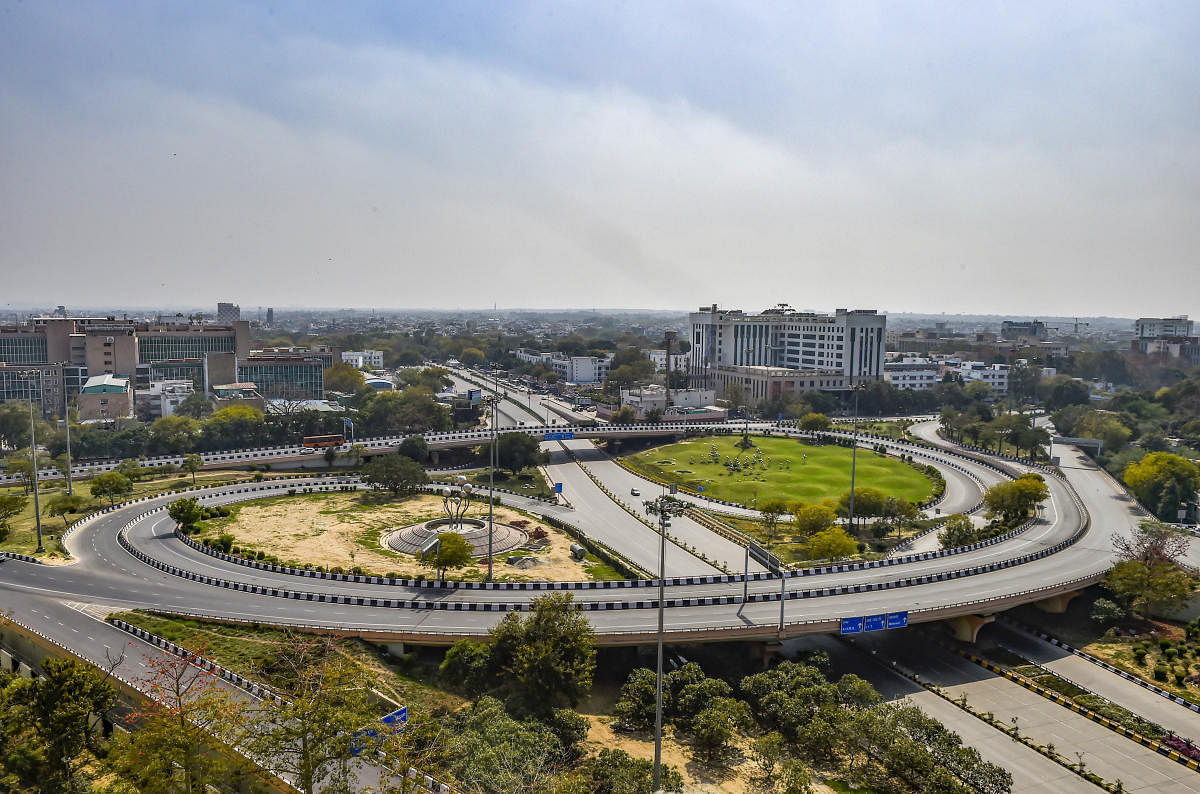
The national capital will be in a lock-down from Monday till the end of March, sealing the borders, suspending all modes of public transport and closing down shops and markets.
This was announced by Delhi Chief Minister Arvind Kejriwal at a joint press conference with Delhi Lieutenant Governor Anil Baijal. Earlier in the day, Delhi Police invoked Section 144 to prohibit any gatherings and weekly markets while Delhi Metro announced shutting of its operations.
"Extraordinary situations require extraordinary measures...Delhi will be in a lockdown from March 23 6 AM till the midnight of March 31," Kejriwal said at the digital press conference.
No public transport – auto-rickshaws, e-rickshaws, taxis, private bus service, government buses and Delhi Metro -- will be allowed during this period. Incoming flights will not be allowed to land in Delhi airport while inter-state buses will not ply on Delhi road.
"The borders states will be sealed. However, there will be an exemption for supply of essential commodities," Kejriwal said. During this period, all private offices will remain closed but both permanent and contractual employees will be considered to be on-duty and should be paid their salaries.
Construction work will be banned during this period. Religious places will also not be allowed to function.
However, essential services like grocery shops and meat and fish shops will be open. Take-aways and home delivery by restaurants will be allowed.
He also said Delhi Assembly's one-day budget session will be held on Monday.
Kejriwal said there are 27 cases of Covid-19 in Delhi -- 6 of them fall under the category of local transmission while 21 had come from abroad.
In its order invoking Section 144, Delhi Police said there is a "likelihood of fast and widespread community transmission" of Covid-19. Delhi Police Commissioner S N Shrivastava issued the order invoking Section 144 of the Criminal Procedure Code (CrPC) from 9 PM of March 22 till the midnight of March 31.
As per the order, demonstrations, processions and protests as well as any cultural, political, religious, academic and sports gatherings, seminar and conferences are prohibited.
Organisation of weekly markets, concerts and exhibitions are also banned during this period but those selling vegetables, fruits and essential commodities are given exemption. Guided group tours conducted by private tour operators also come under the ambit of the order.
"Any individual suspected/confirmed with Covid-19 shall take measures for prevention/treatment ie home quarantine/institution quarantine/isolation or any such person shall cooperate to render assistance or comply with the directions of the surveillance personnel," it said.
Anyone violating the order will be punished punished with simple imprisonment for a term which may extend to one month or with fine which may extend to Rs 200 under Section 188 of the Indian Penal Code.
